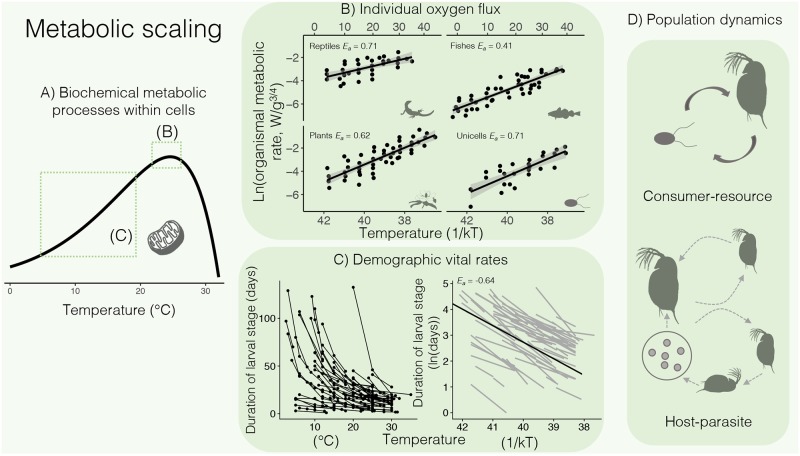Fig 1. The MTE posits that temperature constrains rates of metabolic processes within cells, and these constraints emerge at higher levels of biological organization, such as individuals, populations, and species interactions.
Within individuals, constraints imposed by temperature on cellular respiration and associated biological processes (A) can be estimated as the exponential increase of metabolic rate over a temperature gradient (described by the activation energy parameter Ea). Very similar Ea values characterize the relationship between mass-normalized organismal respiration rate and temperature across species from a wide range of taxonomic diversity (B) (for ease of interpretation, lower horizontal axes are shown in reversed 1/kT, where k is Boltzmann’s constant and T is temperature in Kelvin, while upper horizontal axes are in °C; data from [2]). The temperature dependence of respiration constrains demographically important rates, such as development rate and its inverse, development time, which decreased exponentially with increasing temperature in 72 marine animals (C). The exponential effects of temperature shown in the left panel are often log transformed for analysis, allowing Ea to be described as a slope on an Arrenhius plot (right panel) (data from [9]). Temperature-dependent performance influences the outcomes of species interactions, including consumer–resource and host–parasite dynamics (D). Ea, activation energy; MTE, metabolic theory of ecology.

